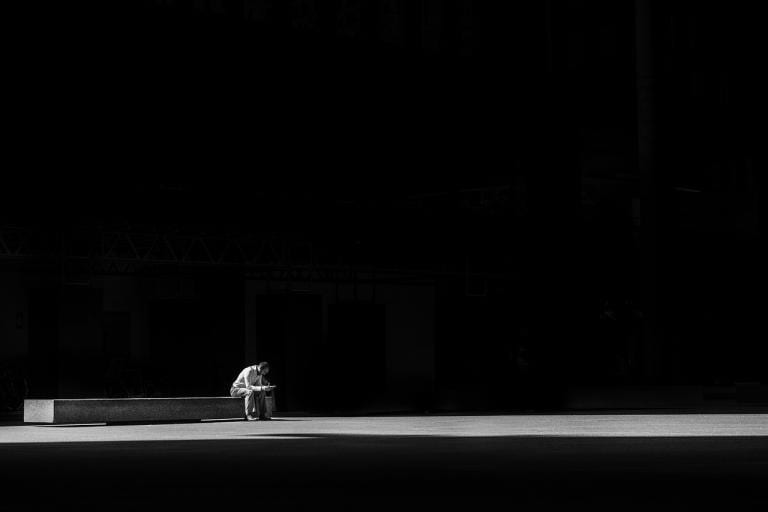Every Lent I try to come up with something interesting and fruitful to do apart from the standard giving up video-games/sweets/alcohol type mortifications. This year I’ve been thinking a lot about the divisions within the Church. Basically, since Vatican II we’ve seen absolutely astonishing gains in terms of reconciliation between Catholics and Protestants – but at the same time, we’ve seen a growing, increasingly fraught divide between “liberal” and “conservative” Christians.
It seems to me, then, that this new threat to Christian unity is perhaps the most pressing issue facing the Church at the moment. Questions like whether communion should ever be allowed for the divorced and remarried pale in comparison with the damage that Christians do to the unity of the Body of the Christ when we allow partisan politics to dictate our allegiances, pitting brother against brother in a tug-of-war for Christ’s mantle.
We’ve all seen the ugliness of the in-fighting, and we all know (if we’re honest about it) that the fracture lines within the Church very closely follow the fracture lines within contemporary secular society. Rather than allowing the Church to lead us into unity, too often we allow the spirit of the age to lead us into factionalism which then infects our practice of the faith and our pursuit of truth.
So for this Lent, I’ve been thinking about ways that I can help to extricate my own loyalties and my own thinking from the trap of secular political categories.
Recently I wrote about how confirmation bias plays out in driving the left-right divide within the Church. Basically, we all approach truth from a different perspective: our culture, our experiences, our relationships and our personalities provide us with a vantage point from which we proceed towards truth. For each person, this starting place is unique, and in each case parts of the truth will be immediately apparent while other parts will be obscured.
This is not a problem. It’s actually how God intends for things to be. As He told Catherine of Sienna “I distribute the virtues quite diversely; I do not give all of them to each person, but some to one, some to others. … I shall give principally charity to one; justice to another; humility to this one, a living faith to that one. … And so I have given many gifts and graces, both spiritual and temporal, with such diversity that I have not given everything to one single person, so that you may be constrained to practice charity towards one another. … I have willed that one should need another and that all should be my ministers in distributing the graces and gifts they have received from me..” (CCC 1937)
What God says here of virtue applies equally to truth. We are all made in the image and likeness of God, and as such we each have a particular spark of the divine genius embedded within our personality. At the same time, no person possesses the truth. Rather, we all seek the truth in our encounter with God and His creation, and also in the unique testimonial of our innermost being.
As Christians we know that when we encounter another human person, we encounter another Christ. Usually we think of this as encountering the wounded Christ: a Christ who is naked, or hungry, or in need of shelter. But we also encounter Christ the teacher; Christ who is the way, the truth, and the light. Each individual person is a new, though incomplete, revelation of God.
The world, however, encourages us to think of our own vantage point as being the entirety of truth, or at least as being the entirety of a “personal truth” that cannot be connected to any objective reality outside of the self. Others either cement and uplift this truth or they threaten it. They are allies, or they are enemies. No other relationship is possible.
We are thus encouraged to turn away from the radical unity of the body of Christ and to identify ourselves through division rather than through communion. We are encouraged to think that some particular group, organization, personality, media outlet or political party has a monopoly on truth. Anyone whose ideas or experiences do not corroborate the beliefs of our “side” must be either ignorant, stupid, confused or malicious. The Other is no longer seen as a bearer of Christ who is capable of shining a light into the darkness of our own errors and ignorance. Rather, we see ourselves as possessing the lion’s share of truth and feel threatened by anything that illuminates our foolishness.
So what do we do about this problem?
My own plan is as follows: for the next 40 days I’m going to fast from books and media (including social media) that corroborate my own prejudices. I’ll get my news from sources with a different set of biases. I will familiarize myself with the primary texts that inform the schools of thought that I’ve habitually neglected. And I intend to gerrymander my Facebook feed so that it shows me more posts from people who I respectfully disagree with, and I’m going to fast from disagreeing with them. My goal is to “read as a loser,” so that my eyes will be opened to the blind-spots in my own thinking and so that I can joyfully receive the truths that I have, up to now, been reluctant to consider.
Image credit: pixabay
Stay in touch! Like Catholic Authenticity on Facebook:













